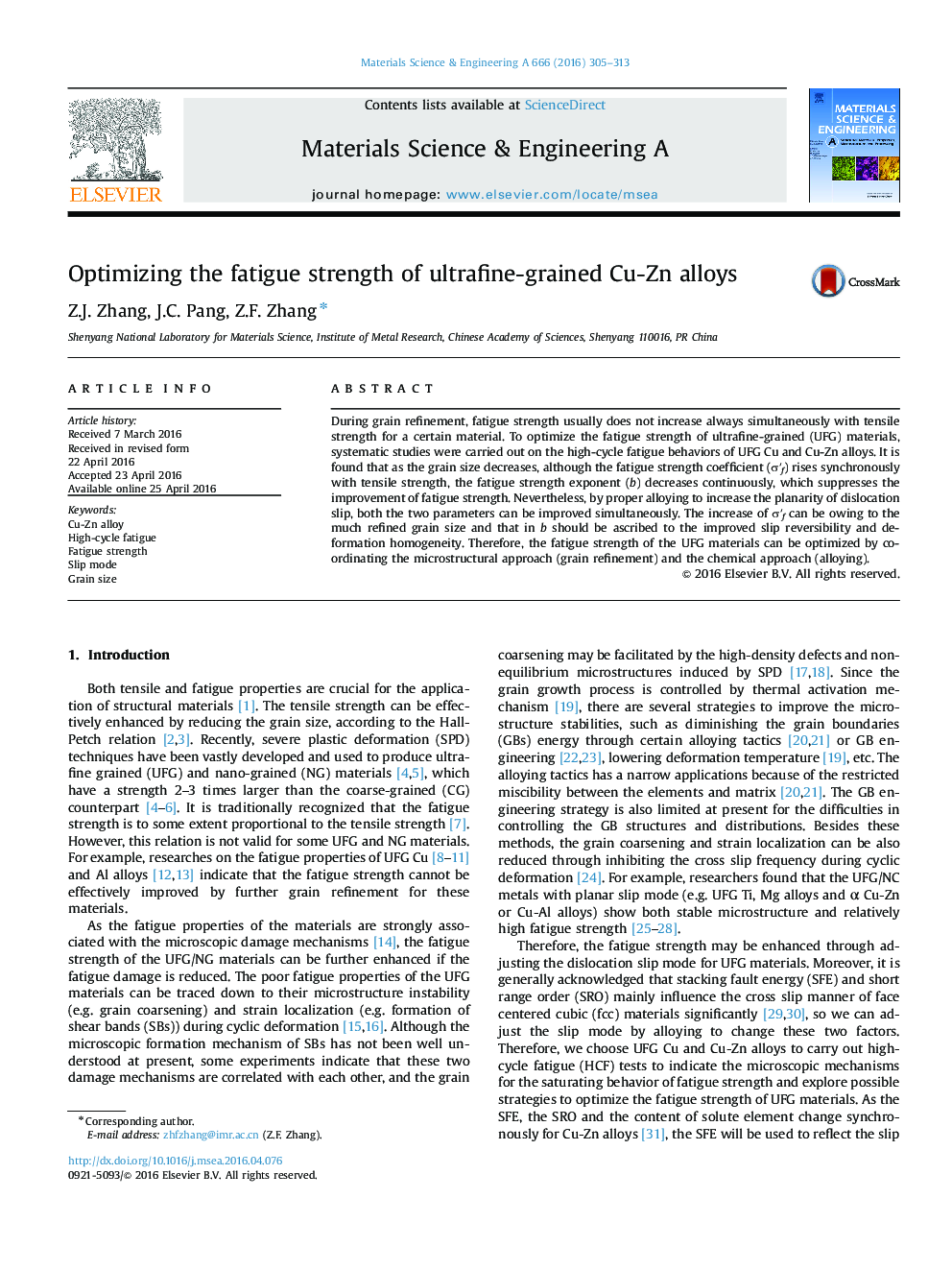| Article ID | Journal | Published Year | Pages | File Type |
|---|---|---|---|---|
| 7975445 | Materials Science and Engineering: A | 2016 | 9 Pages |
Abstract
During grain refinement, fatigue strength usually does not increase always simultaneously with tensile strength for a certain material. To optimize the fatigue strength of ultrafine-grained (UFG) materials, systematic studies were carried out on the high-cycle fatigue behaviors of UFG Cu and Cu-Zn alloys. It is found that as the grain size decreases, although the fatigue strength coefficient (Ïâ²f) rises synchronously with tensile strength, the fatigue strength exponent (b) decreases continuously, which suppresses the improvement of fatigue strength. Nevertheless, by proper alloying to increase the planarity of dislocation slip, both the two parameters can be improved simultaneously. The increase of Ïâ²f can be owing to the much refined grain size and that in b should be ascribed to the improved slip reversibility and deformation homogeneity. Therefore, the fatigue strength of the UFG materials can be optimized by coordinating the microstructural approach (grain refinement) and the chemical approach (alloying).
Related Topics
Physical Sciences and Engineering
Materials Science
Materials Science (General)
Authors
Z.J. Zhang, J.C. Pang, Z.F. Zhang,
